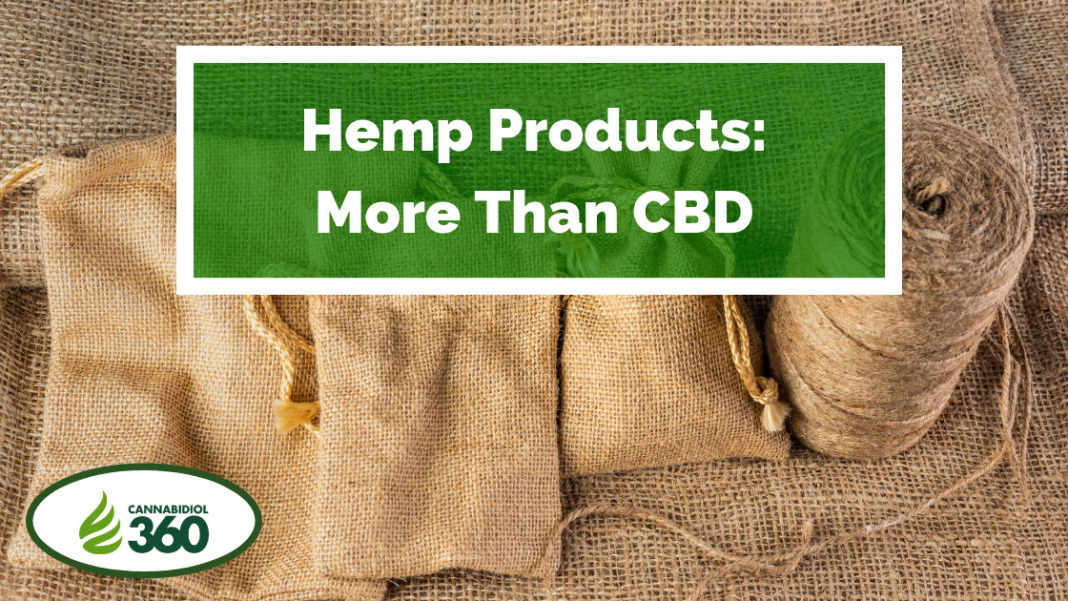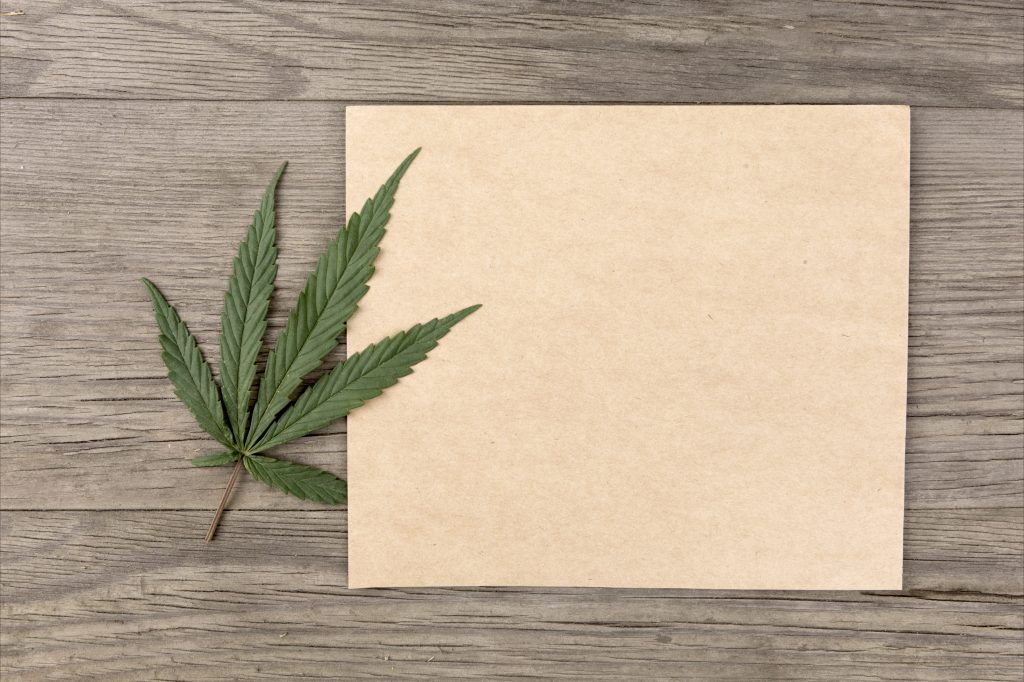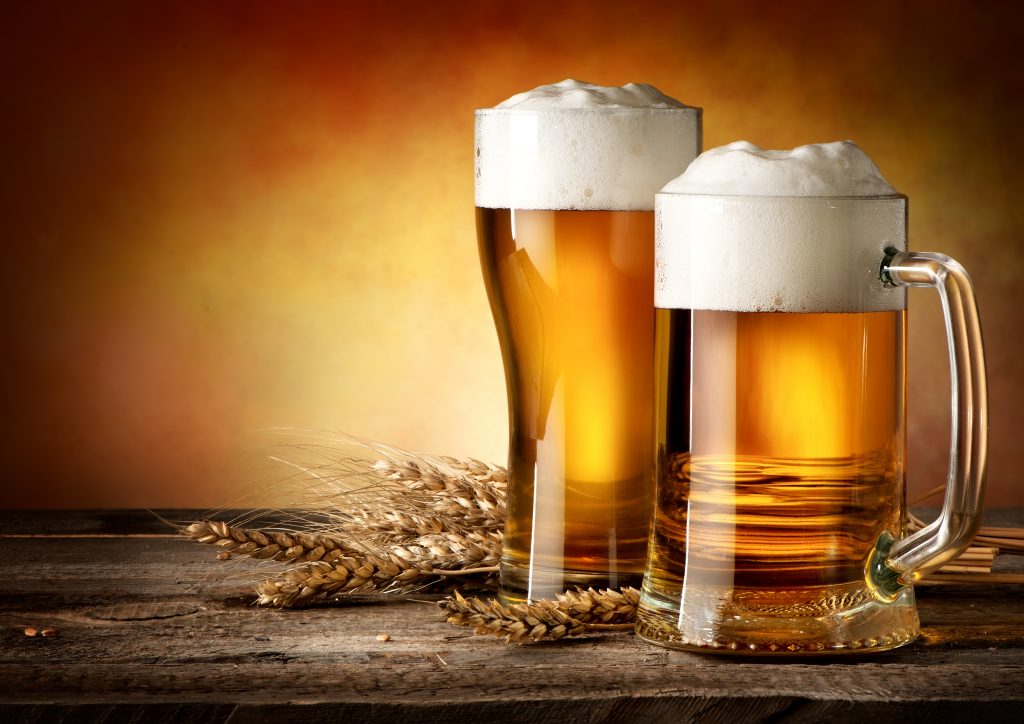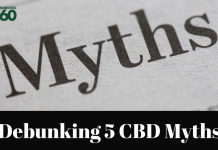
Thanks to new changes in federal legislation, the hemp industry is about to take off for the first time in centuries. Although most of us now associate hemp with CBD, a compound found in hemp that’s known for its enormous variety of health benefits, hemp is so much more.
In fact, hemp was one of the first materials used to produce textiles, its cultivation for this purpose dating back to at least 700 years ago. Since then, this multi-tasking plant has seen more than its share of controversy.
While CBD is probably the most popular use for hemp at the moment, we’d like to examine its many other functions in order to really demonstrate just how crucial this crop is. Now that hemp cultivation is legal once again, we expect to see a wide variety of hemp products all around.
What is Hemp? A Brief but Eye-Opening History
The hemp plant is a member of the cannabis family. Of course, many people associate hemp with its cousin, marijuana. Unlike marijuana, hemp has no psychoactive activity.
That’s because it contains no more than 0.3 percent THC, the chemical compound that makes a user feel high. Marijuana, needless to say, has a much higher level of THC, which is why it’s still considered an illegal drug as far as federal law is concerned.
For centuries, hemp was an industrial crop that was used for many different purposes. It’s widely believed that hemp was first cultivated in China, where it was used to produce clothes and other textiles.
It then made its way to North America sometime during the 16th century, where it was quickly recognized and celebrated as a highly useful crop for a multitude of purposes.
Once hemp was cultivated in the United States, it became a booming industry thanks to its ability to be turned into everything from rope to clothing. Hemp became a highly valuable crop, leading hemp farmers to became some of the wealthiest members of society.
Hemp continued to reign supreme until cotton came to the United States a couple of centuries ago. Cotton quickly became the material of choice for textiles thanks to the fact that it didn’t require nearly as much work to cultivate. Still, however, hemp farmers were able to thrive throughout the United States.
That all came to an end around 1930 when new companies began to develop textiles made from synthetic fibers. These materials were extraordinarily cheaper to produce, making them very profitable for business owners. Many highly influential men of the time used their wealth to invest in these companies.
This began an era during which anti-hemp propaganda was everywhere. Because of hemp’s close association to marijuana, cannabis was outlawed in 1938.
Up until just a couple of years ago, federal law still regarded marijuana and hemp as equally unlawful, meaning that hemp farmers could not legally cultivate their crops in the United States.
How the Hemp Industry is About to Change

With the passing of the 2018 Farm Bill, hemp can now be legally cultivated throughout the United States. In 2014, a law declared that hemp farmers could grow their crops only for research purposes. This led to a number of studies on hemp in order to prove that CBD, one of its leading chemical compounds, has legitimate therapeutic properties. Now that hemp is completely legal, hemp can be grown and studied without any restrictions whatsoever.
Of course, as the CBD industry is booming, we can expect to see the market increase like never before. It’s already been predicted by financial experts that the CBD industry will grow by at least 40 percent in 2019.
However, the legalization of hemp also means that we can expect to see hemp being used to produce a wide variety of commercial goods. Unlike how it was centuries ago, hemp is now relatively cheap to cultivate, making it an excellent alternative to luxury materials that are inaccessible to the average public. Plus, it’s easier to grow than ever before thanks to advancements in technology that have changed the farming industry over the last two centuries.
An Eco-Friendly Alternative
Besides being easy to grow, hemp is extremely eco-friendly. It can be grown without pesticides and herbicides because of its unique chemical composition that naturally repels predators. Additionally, the manufacturing of hemp does not harm the environment in any way.
Other Benefits of Hemp
Hemp is an extremely unique crop in that it’s naturally antibacterial and anti-fungal while remaining completely biodegradable. It’s also known for being uniquely durable thanks to the strength of its fibers. Hemp is renowned for being comfortable to wear thanks to its breathable nature, plus, when worn, it can protect the body from damaging UV rays.
Amazing Uses for Hemp that Don’t Involve CBD

Clothing and Other Textiles
As we already stated, hemp has been widely used throughout history as a material for making clothes. Because of hemp’s unique sturdiness, clothing made from the material lasts for a long time. It’s also known to insulate the body when the weather is cold while being breathable and cool when the weather is warm.
Hemp is very useful as a material for bedding as well. Because of its antifungal and antibacterial properties, you won’t have to worry about mildew or bacteria as long as you wash it fairly regularly. Because of its strength, it won’t wear out for a long time. Plus, it’s amazingly comfortable.
Paper
If you care about saving the forests, invest in hemp paper. While traditional paper is made from wood pulp, hemp paper is made from the mashed fibers of the hemp plant. In fact, paper made from hemp requires less plant material than paper made from trees. It’s a completely sustainable way of making paper that can prevent more trees from getting cut down.
Hemp paper can do more than save trees. Many species of animals are becoming endangered due to the fact that trees are being cut down at a rapid pace in order to produce paper products. By using hemp paper, you can contribute to the preservation of these species’ natural habitats.
Nourishment
If you’re a CBD enthusiast, you know that this compound is uniquely rich in nutrients such as vitamins, essential fatty acids and amino acids. Therefore, it shouldn’t surprise you to learn that hemp powder might just become the big superfood of 2019. Hemp powder shakes may end up as the new post-workout beverage of choice.
Because hemp is high in protein, animal lovers can get on board with adding it to their daily supplements. While most protein sources come from animal products, hemp does not. Therefore, the hemp industry is animal-friendly.
Beer

Believe it or not, you can make beer with hemp. In terms of their chemical compositions, hemp and hops are nearly identical. If you’re interested in opening up a brewery in the near future, consider making hemp-infused beer. After all, with hemp’s wide variety of health benefits and nutrients, your beer can benefit your body while satisfying your thirst.
Rope
For centuries, hemp has been considered the very best material for making rope. That’s because when it comes to strength, no fiber has hemp beat. Ropes made from hemp are known to last for ages without becoming weak.
Fuel
This may come as a surprise, but hemp can be turned into fuel that can power your car. Both hemp methanol and hemp biodiesel have already been tested on cars with great success. Plus, both of these types of fuel are cost-efficient and perfectly friendly to the environment.
Hemp Continues to Expand Commercially
Now that hemp is legal across the country, we can’t wait to see what hemp products explode on the market in the years to come.












